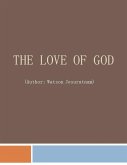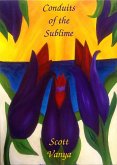The Magnitude of My Sublime Existence is the account of a young woman's stay in the psychiatric ward of a large hospital. The only time she feels safe is when swimming; the only place, the sea, preferably underwater. Selima Hill's 17th book of poetry - her 14th from Bloodaxe - takes her back to the territory of her third book, The Accumulation of Small Acts of Kindness (1983), but this revisiting is quite different in style and mood. Over thirty years later, 'this brilliant lyricist of human darkness' (Fiona Sampson) is more able to chart and illuminate 'extreme experience with a dazzling excess' (Deryn Rees-Jones), with startling humour and surprising combinations of homely and outlandish.
'Arguably the most distinctive truth teller to emerge in British poetry...Despite her thematic preoccupations, there's nothing conscientious or worthy about Hill's work. She is a flamboyant, exuberant writer who seems effortlessly to juggle her outrageous symbolic lexicon...using techniques of juxtaposition, interruption and symbolism to articulate narratives of the unconscious. Those narratives are the matter of universal, and universally recognisable, psychodrama...hers is a poetry of piercing emotional apprehension, lightly worn... So original that it has sometimes scared off critical scrutineers, her work must now, surely, be acknowledged as being of central importance in British poetry - not only for the courage of its subject matter but also for the lucid compression of its poetics' - Fiona Sampson, Guardian.
'Hill, more than any other English poet, cranks out angry, impotent, abused and richly surreal Britain. And she is very very funny...fresh, fierce and convincing... A mood-swinging voice, talking to itself rather than to the reader, shows how pain and joy transform the material world' - Claire Crowther, Poetry London.
'Her adoption of surrealist techniques of shock, bizarre, juxtaposition and defamiliarisation work to subvert conventional notions of self and the feminine... Hill returns repeatedly to fragmented narratives, charting extreme experience with a dazzling excess' - Deryn Rees-Jones, Modern Women Poets.
'Arguably the most distinctive truth teller to emerge in British poetry...Despite her thematic preoccupations, there's nothing conscientious or worthy about Hill's work. She is a flamboyant, exuberant writer who seems effortlessly to juggle her outrageous symbolic lexicon...using techniques of juxtaposition, interruption and symbolism to articulate narratives of the unconscious. Those narratives are the matter of universal, and universally recognisable, psychodrama...hers is a poetry of piercing emotional apprehension, lightly worn... So original that it has sometimes scared off critical scrutineers, her work must now, surely, be acknowledged as being of central importance in British poetry - not only for the courage of its subject matter but also for the lucid compression of its poetics' - Fiona Sampson, Guardian.
'Hill, more than any other English poet, cranks out angry, impotent, abused and richly surreal Britain. And she is very very funny...fresh, fierce and convincing... A mood-swinging voice, talking to itself rather than to the reader, shows how pain and joy transform the material world' - Claire Crowther, Poetry London.
'Her adoption of surrealist techniques of shock, bizarre, juxtaposition and defamiliarisation work to subvert conventional notions of self and the feminine... Hill returns repeatedly to fragmented narratives, charting extreme experience with a dazzling excess' - Deryn Rees-Jones, Modern Women Poets.
Dieser Download kann aus rechtlichen Gründen nur mit Rechnungsadresse in A, D ausgeliefert werden.









